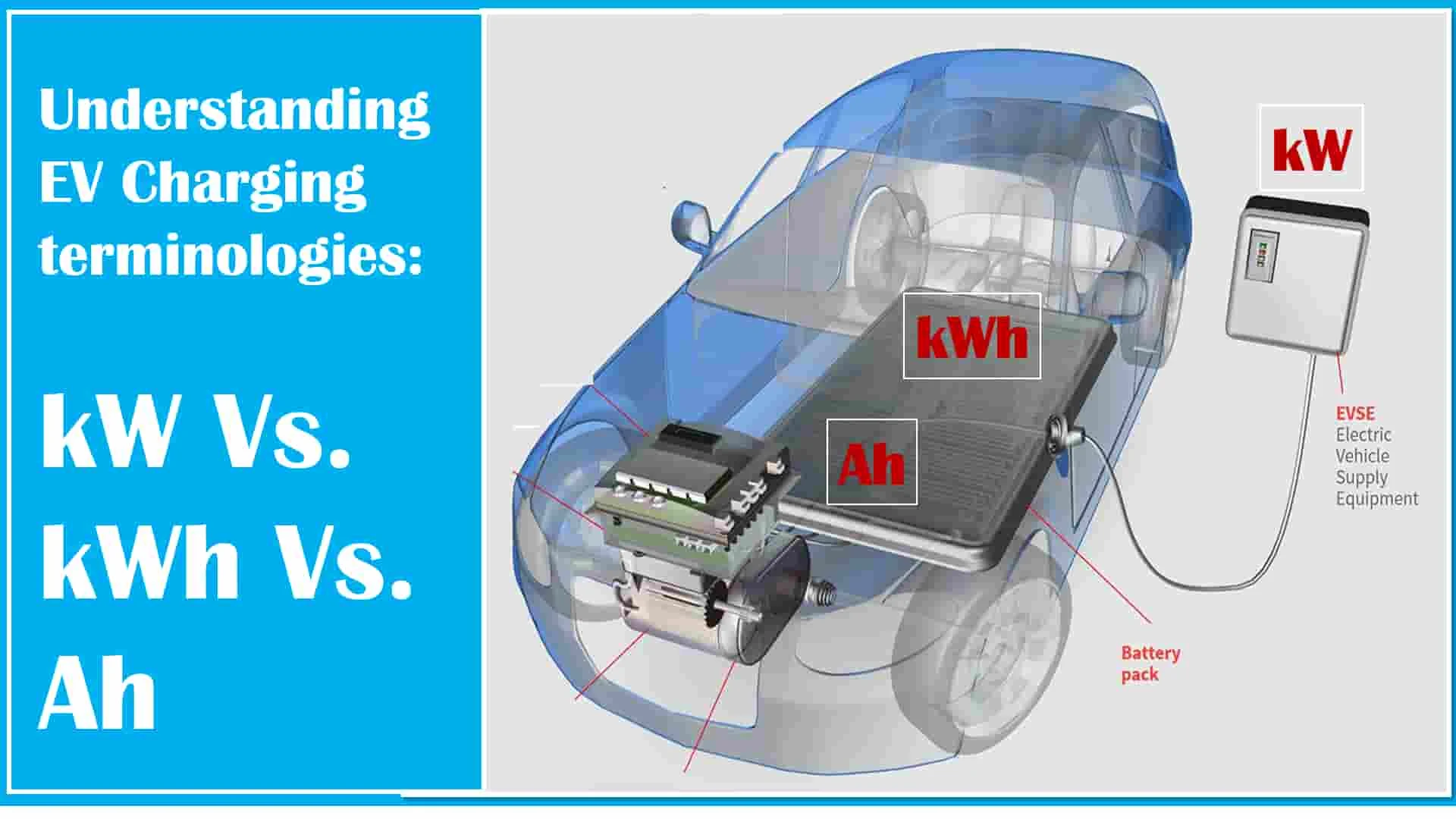CHARGING BASICS 106: Understanding differences between kW, kWh & Ah from EV charging perspective
Interchanging KW and KWh is one of the common
mistakes that is so easy to make, even by eMobility professionals and EV
journalists often! What is the difference
between kilowatts and kilowatt-hours? What do these terms actually
mean? Where it is appropriate to use KW and where KWh?, especially in the
context of electric vehicles.
I hope to clarify these confusions with examples and an easy to understand analogy. Also, aiming to explain another measurement Ampere-hours (Ah) which is quite commonly used to describe the electric vehicles battery capacity.
What's the difference between kW and kWh?
The term “kilowatt” refers to instantaneous “power”, whereas “kilowatt hour” refers to the cumulative energy.
In an electric vehicle & charging scenario, kW is used to define the motor performance (something similar to ‘HP - horse power’ in conventional engines) and charger speed. Whereas kWh refers to the battery size or energy delivered during a charging session (similar to liters or gallons of fuel).
Here’s a simple non-technical analogy:
Think about a swimming pool, where you can add / drain water at certain speed. So here, the speed of adding/draining water Vs the total amount of water that swimming pool is holding at that time is the difference between kilowatts and kilowatt-hours.
In this analogy, the speed/rate at which you add/drain water is the power (that is kilowatts); and the total accumulated water (energy) is the kilowatt-hours.
What is kW (Power)?
The kilowatt (kW) refers to power, which is
equal to current (I) in amperes, multiplied by voltage (V) in volts.
Power (kW) = Voltage (V) x Current (A)
For example:
If a charge point delivers an output
voltage of 230 V and at a maximum current of 32 A , then the maximum power of
the charge point is = 230 (V) x 32 (I) = 7,360 Watt (rounding of to 7.4 kW).
What is kWh (Energy)?
The kilowatt-hours (kWh) refers to energy,
which is equal to power in
kilowatts, multiplied by time in hours.
Energy (kWh) = Power (kW) x Time (Hours)
Energy (55 kWh) = Power (11 kW) x Time (5 Hours)
Here, the 55 kWh is the energy for
which you’ll pay to the eMobility service provider. When you use a 3.7 kW
charger, the charging time might be approximately 4 times more; however for the
full charge you’ll still pay for the 55 kW.
* Above mentioned are indicative numbers ;
in reality, a full charge will take a slightly longer than this 5 hours, as the
charging power gradually reduces when it goes above 80% of state of charge
(SoC) battery. But also the charging station may change its charging speed
based on different smart charging profiles set.
I hope the difference between kilowatts and
kilowatt-hours are clearer now; now introducing another related term Ah
(Ampere-hours).
What is Ampere-hour ?
KWh is used to describe the full battery
system capacities, whereas the Ah (Ampere-hour) describes about individual
cells that make up a battery pack. Electric vehicle manufactures (EV OEMs) or
the battery manufactures will always use ‘Ah’ to describe the cell capacity.
This is a cumulative unit of capacity which
is equal to current and amps multiplied by time in hours
Capacity (Q) = Current (I) x Time (hours)
But, why do cell manufacturers provide the size of their sales and ampere-hours rather than Watt-hours?
The reason is that a battery cell always
charges at ‘constant current’ from empty to full capacity. The cell’s voltage
constantly varies during the charge increasing from its minimum to its maximum
value. Since power equals current times voltage (P = V x I), the instantaneous
power of the cell is also constantly changing during charging or discharging,
though the current is constant. That is why it is much easier for the manufactures
to describe the capacity of the battery in terms of ampere-hours, leaving out
the voltage variable.










Post a Comment